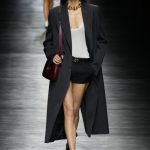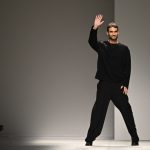Photo: Cindy Ord/Getty Images
These are the stories making headlines in fashion on Thursday.
Selena Gomez is proving how a purpose-driven brand can have commercial success
Selena Gomez’s Rare Beauty has found success through encouraging self-love and advocating for mental health issues, and now the makeup brand is expected to reach $300 million in revenue in 2023. Despite Rare Beauty being only three years old, it’s the top-ranked beauty brand on social media in the U.S. and it’s already raised $12 million of the $100 million it has committed to mental health causes over the next decade through its Rare Impact Fund. After rising to fame at a young age, Gomez has spoken about dealing with anxiety and depression and she’s also been vocal about society’s obsession with perfection, especially for women. “We center everything on wanting people to take care of themselves and love who they are, and have a safe place to share their stories,” Gomez told WWD. In the profile, Gomez and the Rare Beauty team share an inside look at the brand and discuss how crucial the self-love aspect really is. {WWD/paywalled}
Inside Atelier Jolie HQ
Angelina Jolie opened her first retail space, Atelier Jolie, in Soho, New York City on Wednesday at 57 Great Jones Street, in a carriage house where painter Jean-Michel Basquiat lived and worked in the ’80s. Shoppers can work with the Atelier Jolie team to customize pieces in the collection, including tailoring, patchwork, embroidery, painting and screen printing. The collection includes a range of pieces from maxi dresses starting at $575 to suiting. There’s also a cafe run by Eat Offbeat. “We are a collective that aims to show that an ethical and sustainable lifestyle isn’t a lesser life with limitations,” Jolie told Harper’s Bazaar. “It is better quality of life, with personal creativity and community at its center.” {Harper’s Bazaar}
Dupe culture poses a serious problem for the fashion industry
Dupes, or “duplicates” that emulate another company’s product without claiming to be the original, usually at a lower price point, are especially popular among Gen-Z TikTok and Instagram influencers. Dupes are often technically legal and do not violate the original company’s intellectual property rights. Amazon searches for Skims dupes have surpassed searches for authentic Skims products, according to a study done by Marketplace Pulse for The Fashion Law. “While true dupes may be perceived as harmless due to their legality, they harm small brands and stifle creativity,” Nicolette Shamsian writes for Above the Law. “The association of the original product with an inferior and prolific dupe may cheapen the perception of the genuine item.” Dupe culture not only results in poor-quality products, but some influencers have also promoted illegal counterfeit goods as “dupes.” {Above the Law}
Want the latest fashion industry news first? Sign up for our daily newsletter.



